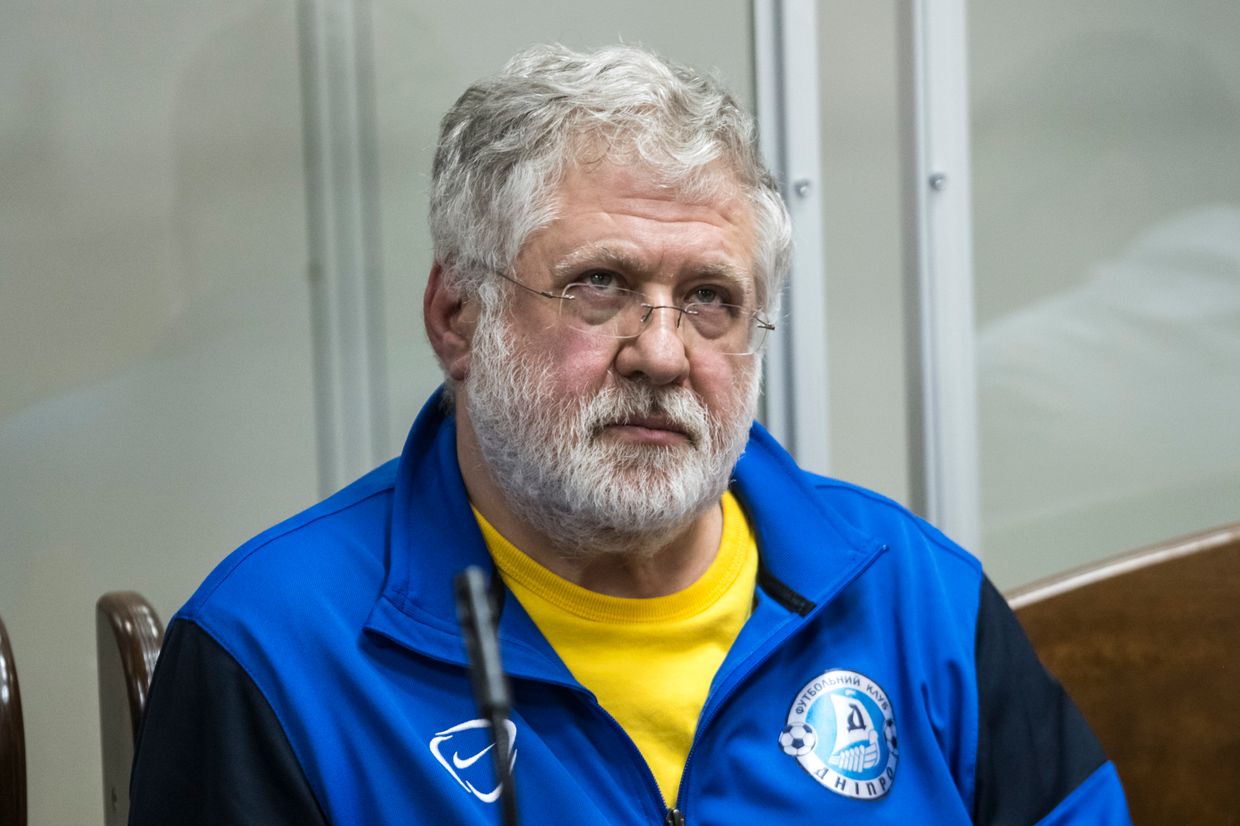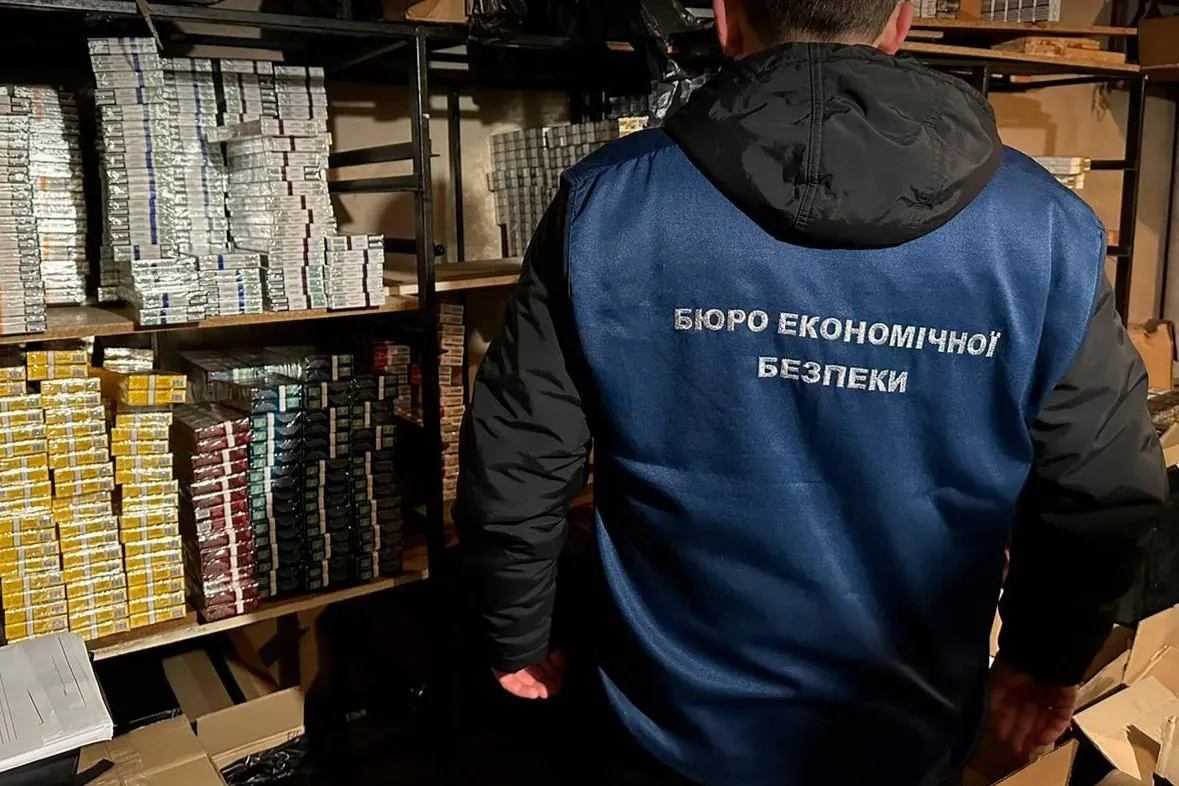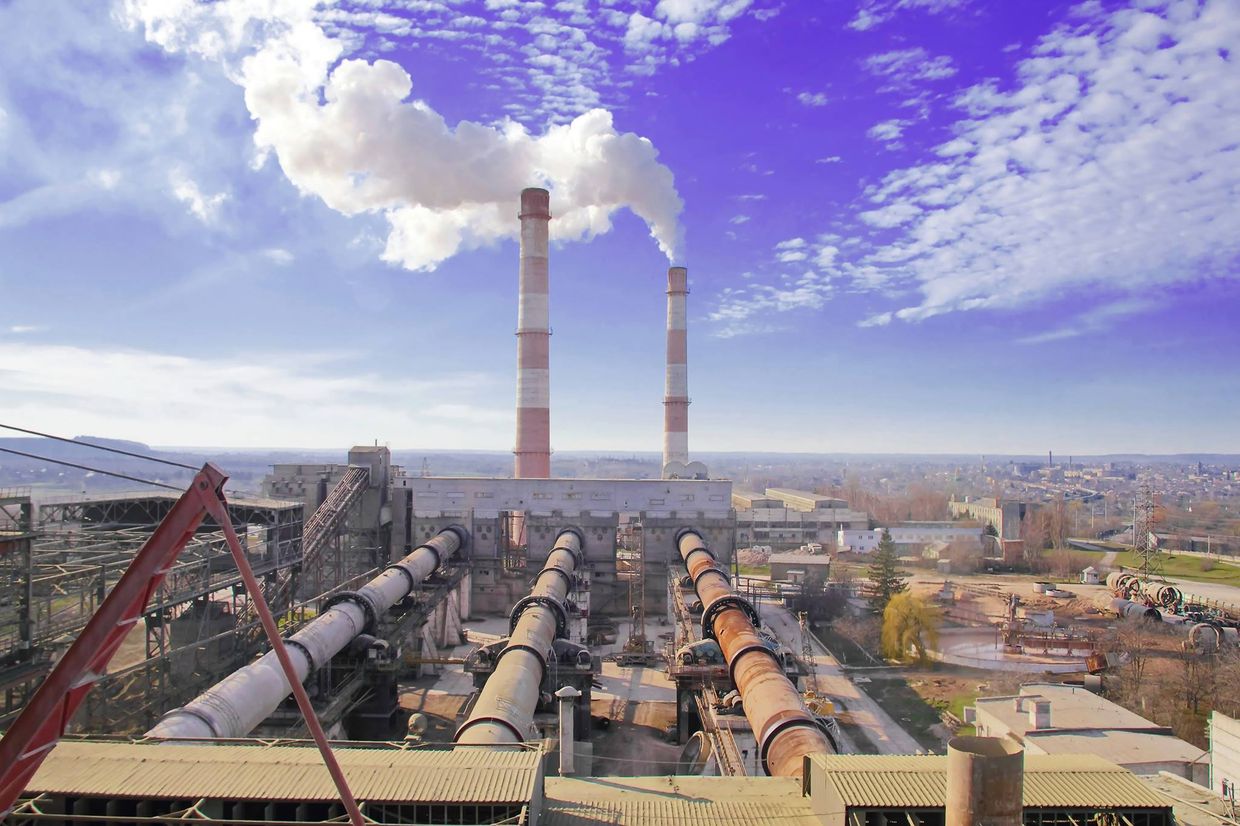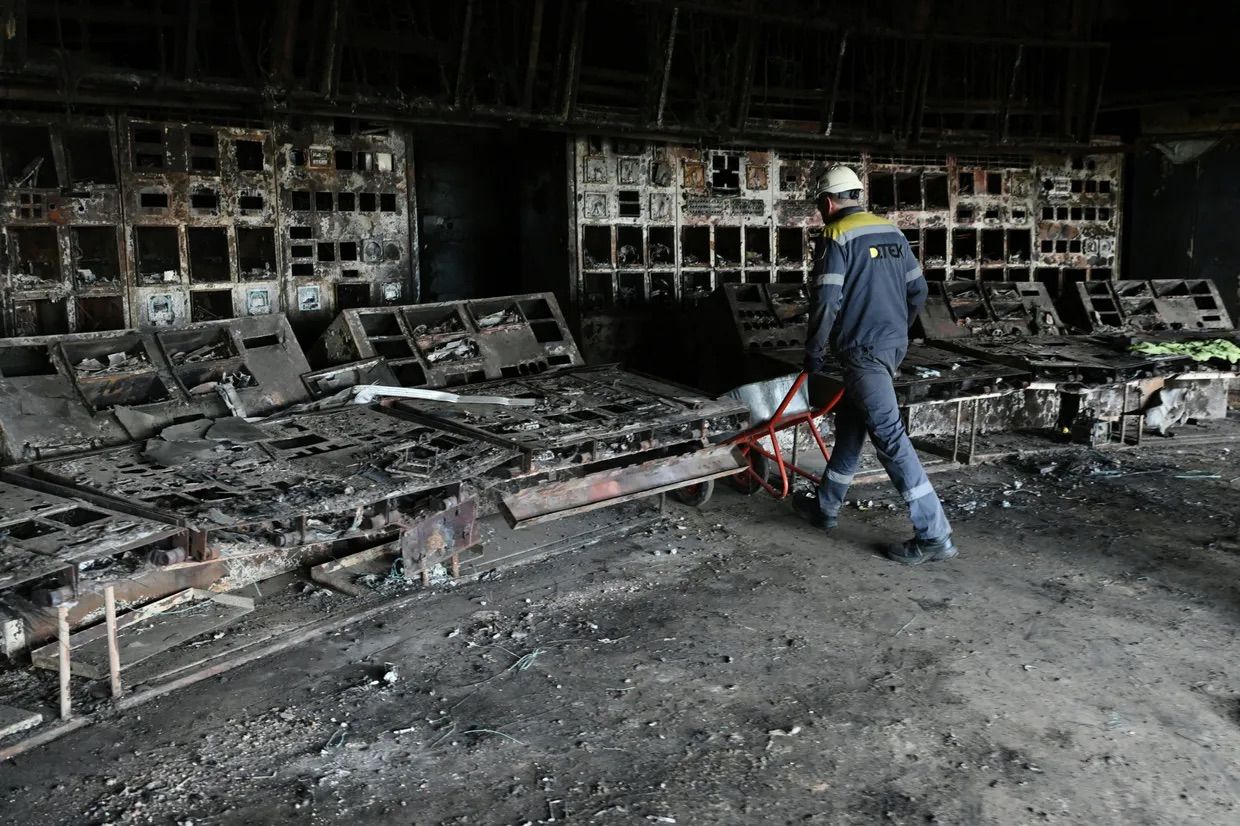The following is the May 14, 2024 edition of our Ukraine Business Roundup weekly newsletter. To get the biggest news in business and tech from Ukraine directly in your inbox, subscribe here.
Ukrainian businesses and industry will face more restrictions in energy use due to "significant shortages of electricity” amid Russian attacks, Ukraine's state-owned energy operator Ukrenergo announced.
Russia launched another large-scale overnight attack on May 8 against energy infrastructure in central and western regions of Ukraine, the fifth attack against Ukraine's power network since the start of the year.
Why does it matter to business? It’s not just an inconvenience. Less power means less production, which ultimately means less money made. Small businesses especially have an even harder time staying afloat without power and an internet connection. Small and medium-sized businesses are the lifeblood of Ukraine’s economy.
Already on May 8, 9, and 10, supplies for industrial and commercial users were restricted in the evenings until early morning the following day. Restrictions are still ongoing. The company also said that “in case of increased consumption, emergency shutdowns may be applied.”
"Limiting consumption is a necessary measure to preserve the stability of the energy system" in the wake of Russia's latest attack, Ukrenergo said.
Volodymyr Kudrytskyi, the head of Ukrenergo, also warned that imports from Europe would not be able to completely cover Ukraine's energy deficit as a result of the attacks. Later on May 13, the company said that Ukraine planned record electricity imports from five European countries.
Imports were expected to hit 19,484 megawatt hours (Mwh) on May 13, a record high after 18,649 Mwh were imported at the end of March following a series of massive Russian attacks on Ukraine’s energy sector.

Kolomoisky’s fall continues
Infamous, and jailed, Ukrainian oligarch Ihor Kolomoisky just added contract killing to his growing list of charges. Ukraine’s Prosecutor General’s Office on May 8 officially suspected him of ordering the murder of a lawyer back in 2003.
What happened? Back then, the lawyer apparently refused to reverse a decision made at a shareholders meeting of a company Kolomoisky had a stake in. Kolomoisky then allegedly hired four thugs in Crimea to murder the lawyer. His life only was saved after his wife intervened and he was taken to the hospital.
The National Police, who say they now have "indisputable evidence" of Kolomoisky's guilt in the case, wrote in a press release that the assassination attempt happened in the Crimean town of Feodosia in August 2003.
Despite it happening more than 20 years ago, the message from the authorities seems to be that no criminal, no matter how wealthy or connected, is safe anymore.
While this doesn’t mean every bad actor in Ukraine will get what they deserve, it’s a positive sign that at least one particularly vicious businessman is getting his comeuppance. It’s likely other oligarchs and nefarious businesspeople are anxiously watching Kolomoisky’s downfall.
Kolomoisky was first arrested on Sept. 2 for alleged fraud and money laundering related to his oil and gas holdings. He is the wealthiest businessman to have landed behind bars in Ukraine's independent history.

The pressure continues
The Verkhovna Rada this past week voted to officially summon the head of the Bureau of Economic Security in connection to recent searches at a Kyiv-based business association and relentless pressure on businesses in Ukraine.
If you’ve been following this newsletter regularly, you’ve gotten used to updates on the battle against what businesses say is continued heavy-handed treatment by law enforcement officials.
But in case you’re only now tuning in: Businesses in Ukraine have long complained of undue searches and raids by law enforcement, who at times show up on their doorsteps fully armed and in balaclavas, seize assets, and freeze bank accounts.
Public outcry over the arrest in January of well-known businessman Ihor Mazepa who was openly critical of pressure on businesses prompted presidential decrees on the creation of a business council, a three-month moratorium on searches (that was neither legally sound, nor respected), and calls to reform the Bureau of Economic Security responsible for economic crimes, and, well, the pressure…
The CEO Club, a business association in Ukraine, said on May 6 that last month, the bureau's officials searched the association's premises.
The club’s founder also said that anonymous Telegram channels had begun spreading false claims that the searches uncovered illicit establishments operating under the guise of the CEO Club. Members of the CEO Club have been outspoken about pressure on business by law enforcement. In case you’re wondering, yes, this is a pattern.
Lawmaker Yaroslav Zhelezniak wrote on Telegram that the Verkhovna Rada had voted to summon Serhiy Perhun, the current acting head of the bureau, adding sarcastically, “Indeed they are fired faster than we can remember their names.”
The bureau has seen several management changes over the last year and with a law to reform it envisioning major personnel changes through a verification process almost through the parliament, it’s not just the heads that will be on the chopping block.

Robots to the rescue
Ukraine has already put nine land-based robotic complexes into operation since the start of the year, the Defense Ministry announced on May 10.
Digital Transformation Minister Mykhailo Fedorov said earlier in March that Ukraine was moving forward with its plans to mass-produce unmanned ground vehicles (UGVs) in order to reduce human involvement on the battlefield, and ultimately save lives.
What can they do to help on the battlefield? The robots can perform a variety of functions, including combat with machine guns, transporting ammunition, mining and demining, and evacuating wounded soldiers.
"Many domestic manufacturers are currently focused on the production of robotic systems in order to increase the capabilities of the Armed Forces of Ukraine and save the lives of our soldiers," said Defense Ministry representative Colonel Volodymyr Rochniak.
"Since the beginning of 2024, nine land-based robotic complexes created by Ukrainian gunsmiths have been codified."
The push toward UGVs could be critical for Ukraine, which is facing a personnel crisis as the country struggles to mobilize more soldiers. While Ukraine’s use of aerial drones has revolutionized modern warfare, it’s still unclear if UGVs have a similar potential, especially in a war largely fought with each side lobbing artillery at the other.

Argentine-Ukrainian relations
Ukraine’s Economy Minister Yuliia Svyrydenko is in Argentina this week as Ukraine looks to deepen its ties with Latin and South American countries.
The key topic on the agenda? The defense sector, particularly joint defense ventures, ammunition purchases from Argentine companies, and investments in Argentine weapons producers.
The two sides also discussed how Argentina can help Ukraine with spare parts to repair its energy infrastructure and temporary grain storage amid Russia’s continued attacks on grain silos.
Argentina is known for its “silo bags” — a low-cost, easy-to-use, and efficient system for storing grain. Svyrydenko called on Argentine companies to invest in Ukraine’s agriculture sector. (If we have any Argentinian readers in the agricultural field, this one’s for you!)
On Tuesday, Svyrydenko wrote on Twitter that she and Strategic Industries Minister Oleksandr Kamyshin had met with Argentina’s first deputy of International Economic Relations Hector Marcelo Cima where they agreed to hold a meeting of the Joint Ukrainian-Argentine Intergovernmental Commission on Trade and Economic Cooperation for the first time in 18 years.
Cima said there is a “great interest in cooperation with Ukraine in the pharmaceutical and agricultural sectors, both in trade and in agroproduction,” according to Svyrydenko.

In case you missed it
Last week, business reporter Dominic Culverwell published an article on the looming crisis in the cement industry in Ukraine and a deal between two giants that could worsen the situation.
In short, Ukraine is looking at a deficit of around 2-3 million tons of cement for the first few years of reconstruction (when it begins in earnest after the war) considering the current capacity of cement producers in the country.
Cement is the main ingredient in concrete, the main building block of everything humans build, and which Russia has sought to destroy in Ukraine, including apartment buildings, bridges, dams, etc. Shortages and a concentrated market could lead to higher cement prices, and ultimately a more costly reconstruction.
If you haven’t already, give it a read here.
Company news
ArcelorMittal Kryvyi Rih nearly doubles production in April compared to last year. Ukraine's largest steel company ArcelorMittal Kryvyi Rih said in a press release on Monday that it had launched its No. 6 blast furnace after repairs and increased steel production in April 2024 by 90% year-over-year to 163,000 metric tons. Rolled steel production also increased by 95% y-o-y to 152,000 metric tons. "In April, the company continued to implement plans to increase production volumes, despite constant attacks on the country's energy infrastructure and related restrictions in energy supply," the company said in the press release.
Ajax Systems wins prestigious Red Dot design award. Ukraine’s lauded wireless security system maker Ajax Systems won the Red Dot design award — considered one of the top three global design awards — for the first time in the company’s history. Ajax was awarded in the Smart Products Category for its KeyPad TouchScreen Jeweller, in the Interior Design Elements Category for its WaterStop & LeaksProtect and its LightSwitch & Outlet products.
Nova Poshta opens in the UK. Ukraine’s largest private postal service Nova Poshta (known as Nova Post abroad) keeps expanding. With this last opening, the company has now moved into to 13 countries since the start of the full-scale invasion, where it operates 90 branches.
What else is happening
European Council extends export tariffs suspension for Ukraine for another year
The European Council agreed on May 13 to extend the suspension of export tariffs for Ukraine and Moldova for another year, the council's press service said. The extension includes two new "safeguard mechanisms to protect the EU market” (and assuage Polish protestors): “regular monitoring” of exports and quotas if export levels of key food products exceed that of the previous three years.
Minister: 3 billion euros of Russian assets revenue 'almost nothing' in war's context
The EU's expected annual contribution of around 3 billion euros ($3.2 billion) drawn from frozen Russian assets profits is "almost nothing" in the context of the full-scale war, Justice Minister Denys Maliuska told Politico at the G7 justice ministers' meeting in Venice on May 9. "If we are talking about the needs of Ukraine and the needs of the war, military and non-military… we need hundreds of billions in order to win the war," Maliuska said. But "it's a good first step," he added.
Zelensky: Ukraine expects EU accession negotiations to begin in June
"We are actively preparing the next stage of rapprochement with the European Union for June and we anticipate the adoption of the negotiating framework and the actual start of the negotiations on Ukraine's accession," Zelensky said in his evening address on May 9. Katarina Mathernova, the EU ambassador to Ukraine, said in an interview also on May 9 that she believes “2030 is a very realistic date” for Ukraine to join.
National Bank: Ukraine's losses from Polish blockade partially offset by maritime trade
Losses caused by the Polish blockade of the Ukrainian border amounted to $500 million in lost imports and $160 million in exports in its first month, the National Bank of Ukraine said on May 14. The lost imports were partially compensated through alternative supplies, and the exports were offset by trade via the new Black Sea corridor, the National Bank's statement read.
Parliament dismisses Infrastructure Minister Oleksandr Kubrakov
Ukraine's Parliament, the Verkhovna Rada, voted to dismiss Infrastructure Minister and Deputy Prime Minister for Reconstruction Oleksandr Kubrakov on May 9. There are two popular points of view on why he was let go, according to Kyiv Independent Chief Editor Olga Rudenko’s newsletter, Ukraine Weekly: One, he was a technocratic roadblock to monied interests who wanted lucrative reconstruction contracts, and two, he had gotten too popular (something Zelensky and his team don’t take lightly). When Kubrakov was fired, he got a personal shoutout by U.S. Ambassador to Ukraine Bridget Brink. For more good takes on what happens in Ukraine each week, subscribe to the Ukraine Weekly newsletter here.













